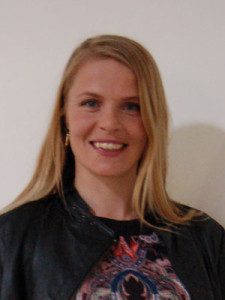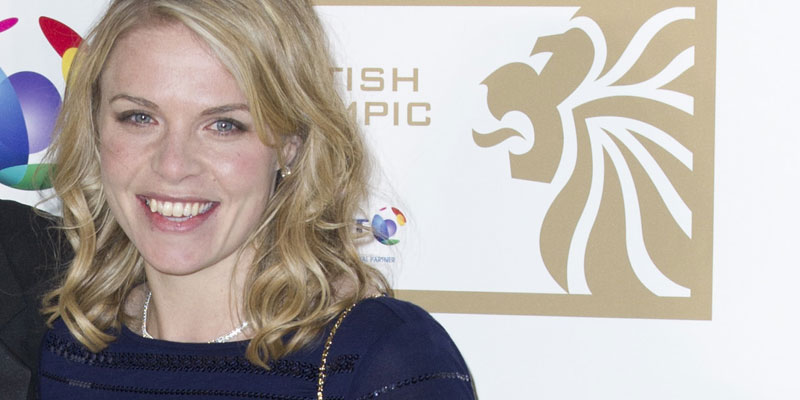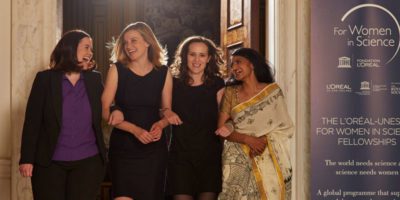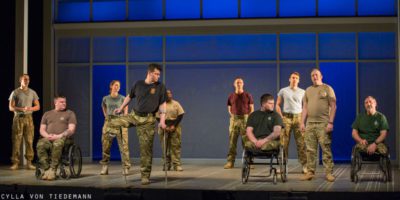Anna Watkins MBE is an English rower who won a gold medal in the double sculls at the London 2012 Olympics, a bronze medal in the double sculls at the 2008 Olympics in Beijing, and four medals in the World Championships; most recently in a successful defence of her world title with Katherine Grainger. She is currently studying for a PhD in mathematics whilst she is on a sabbatical from rowing, having recently become mum to baby William.

“…In the past century we’ve come a huge long way in women’s rights and there are issues out there that are incredibly serious. We need to bang the drum really loudly about that, but we also need this…”
A geeky child who got side swiped by rowing
I had a very ordinary background. My parents weren’t athletes. My mum is a teacher. My dad is an accountant. I couldn’t have been from a more ordinary place. I went to a state school. I wasn’t rowing at school. We did some sports, but I never shone at any of them so I never thought that I could by an Olympic athlete.
Actually I was a happy, geeky child. I used to do maths competitions when I was growing up. I went off to uni thinking I was going to be somebody academic and got completely side swiped by rowing.
I took it up just as a hobby, just to get fit. I never thought it would be something that would take over my life, but within a couple of year’s I’d realised that I was going to be better at that than I was ever going to be at physics! I thought maybe I ought to have a re-shifting of my priorities!
Joining the British Rowing Team
So I started training as much as I possibly could around my studies and by the time I left uni I was in the British Rowing Team; that was 2005. So then I trained up until the Beijing Olympics. I thought “I can dedicate three years of my life to this now. I’ll give it a shot.”
In Beijing we ended up in a really close race and we missed out on the gold medal by about six inches, and by then we knew that the Olympics was going to be in London so I thought, “Right, well, OK, we’ve got to have another go at this.”
Forming a partnership with a powerful team dynamic
So I did another Olympic cycle and in the second year of that cycle I joined together with Katherine Grainger and formed a partnership which was much more exciting, much more dynamic and worked on a different level than anything I’d done before.
There was a really powerful team dynamic and we did that for three years and had an unbeaten run. And that took us through to London.
Our differences are our individual strengths – greater than the sum of our parts
I think there’s parts of our personalities that are very different and there’s parts that are very similar. Our differences are our individual strengths really. That’s how we see it. So I’ve got a science background. I’m very analytical. I like to be precise about how we’re training and use the data and use the tools and make detailed plans and lists, targets for sessions. That’s how I’ve always gone about life and my rowing.
The thing that doesn’t come so naturally to me is using adrenaline in a positive way, that sort of passion and intensity and enjoying being in a high pressure competitive situation. That’s Katherine all over. She’s really great at that. She couldn’t care less about the graphs and the numbers. So the two of us together, we’re greater than the sum of our parts because we’re happy to take our respective roles.
I sit in the seat of the boat where you have to make the calls and the decisions and the tactical stuff. Katherine has to lead us from a physical sense; she brings the intensity and the physicality. I can devolve responsibility for that to her and vice versa. Those are our differences really.
Enjoying being in the company of strong, inspiring women: Quite an extraordinary partnership
The way’s we’re very similar is that we both enjoy the training. We both enjoy being in the company of really strong, inspiring women. That’s one of the most awesome things about being in a sports team of women. You just appreciate being around each other.
We relax well in each other’s company. We chill out well, which is pretty good as we have to spend all day every day in each other’s company. It’s been quite an extraordinary partnership.
We’d be on the water or in the gym for roughly six hours a day, but then in between that we’d sit down with our coach and go through videos or data or review races or something like that, so it’s a very full-on existence.
Access to funding
I was lucky enough to be of the generation that rowed when lottery funding was already in place. Katherine remembers it just before. The difference is huge because you can’t put those hours in that I’ve just described if you’re working a full time job alongside.
One thing that has really changed during my time in the squad is the relative status of the women’s squad within that. When I started it was all about Redgrave, and rightly so, because he’d been the pioneer and he’d put the British rowing team up there in lights. He was the reason why we were a credible organisation.
The women’s team had to piggyback on that to an extent. They hadn’t been getting the gold medals and world championship medals and so we were reliant on the men to provide funding and so on.
Three gold medals; the women’s squad went from strength to strength
But over my time in the sport, the women’s squad’s gone from strength to strength. The real moment where it all came together was London, where the women’s team got three gold medals. The men’s team got one this time, which they always do, but the three was something special.
That flipped things for the first time. The women’s team was being spoken of in the same terms as the men, with the same respect, on the same footing.
With Katherine’s extraordinary story, our crew got the lion’s share of the attention and in rowing that’s unprecedented for a women’s crew.
Women: From an afterthought to the main event
Women have gone from being an afterthought to being the main event in London. I found that massively inspiring to be a part of because I’ve seen how it can change. I’ve seen the knock on effect it’s had on girls I go to speak to in high schools. They all now think, “I can go rowing. I want to try rowing.”
It’s only one small sport, but if that effect could be rippled out to all sports, imagine the difference this could make. Sport changes how people think about themselves and how they define themselves. I now believe that it’s possible. It just takes for the story and the language and the perspective of people around the women’s teams to shift slightly and then it’s all there.
There’s these fantastic teams that are performing and we just need to talk about them in the right way and represent them in the right way and then anything is possible.
Inspiring the next generation
I go into schools whenever I can. I made a point of visiting the schools in the town where I grew up and the town where I live now pretty soon after the Olympics and now I’m juggling a lot of things, but I still probably visit a school at least once a month; different ages – I go and see tiny little kids who say, “What’s an Olympic gold medal? My daddy bought me a new hair bobble at the weekend!” It’s really cute!
Then it’s through to sixth formers who are just starting out, making big decisions about life.
Realising that life hadn’t been all about going backwards fast in a boat
I think that’s one of the most worthwhile things an athlete can do. It’s an important part of who I feel I now am coming out of London the other side. I think in sport when you’re an athlete you’re very blinkered, necessarily so because you’re focusing 100% on what it takes to win the race.
You don’t the bigger picture necessarily and it took me the experience of going through London to realise that my life hadn’t been all about going backwards fast in a boat!
It’s valid as long as you make it valid
There were moments where I thought, “Is this really a valid way of spending my time?!” and then the Olympics happened and you think, “OK, it’s valid so long as you make it valid.”
And that’s what I’m all about now. I’m about spreading the word about sport and not just to women. I talk to all sorts of different audiences, but it’s got to have a positive effect on society because society supports sport and it has to go two ways.
It’s been a real revelation to me that actually what I’ve been doing can have an impact and be relevant. I’m having a lot of fun bringing that into the real world.
Showing girls the breadth of different sports to try
The media is really important. It depends where you live what facilities are available. All little boys grow up thinking that if they were good enough they could be a footballer. They know that’s there and they know rugby’s there and they know cricket’s there. I think that people don’t grow up with some of the lesser known sports and women’s sports in mind. The media has a hugely important role to play.
Whilst we’re in the situation where women get 4 or 5% of the sports coverage, the girls aren’t going to grow up with a career in sport as an obvious choice, so that’s a lot of what the Women’s Sport Trust is about, making those shifts in a positive way.
“Look at these amazing women. Let’s get behind them.”
It’s not about banging on people’s doors and saying, “Oi! You’re giving all the sponsorship to the boys.” It’s about saying, “Look at these amazing women,” and “Let’s get behind them.”
In the past century we’ve come a huge long way in women’s rights and there are issues out there that are incredibly serious. We need to bang the drum really loudly about that, but we also need this; we also need the positive side. We also need to say, “Women are not about that, they are about this and show it in all its glory.”
Thankfully sport is more positive and joyous, so it’s great to be able to celebrate what’s going right, draw attention to it and see it as a force for good.
Being a mum and learning to juggle
I’m learning fast. I’m learning to juggle. I ask other mums, “When am I going to feel like I’m on top of everything?!” and they say, “Never!”
Each week is a new challenge – how we’re going to work out the childcare and the things we’re going to get done and run the house and get some sleep and do some PhD and all these different things. It’s a crazier existence.
In some ways being an athlete was simpler because it was easier to define what being a ‘good’ athlete, a ‘perfect’ athlete even was about. You could have a week of training that you knew you’d done everything that you should do and no more.
You knew when you’d done all your training that the most important thing you could then do was rest so you could do the next day’s training. It was quite nicely packaged in that sense. You know what it’s all about, whereas being a mum, it’s bottomless, isn’t it?! It’s a whole new challenge.
Not ruled out a return to rowing. There is no rule book
William is eight months old. I’m having a sabbatical. I’ve not decided about going back to rowing. I’m trying to enjoy where I am because so much positivity came out of London. I want to make the most of what’s there right now and enjoy the time with my little one. I’ve not ruled out a return to rowing in the slightly longer term.
There is no rule book. There’s been no British female rowers who’ve had a baby and gone back. Generally people have retired for good and then had a baby a few years down the line. Whatever I did would be the first so I’ve just got to make out what’s right for me and the family. It’s quite fun. It’s a whole new world. It’s good for me.
https://twitter.com/annawatkinsgb
https://www.facebook.com/AnnaWatkinsOfficial
Anna was a speaker at the Women’s Sport Trust #BeAGamechanger event.
Women’s Sport Trust raises the visibility and increases the impact of women’s sport through role models, media coverage and funding. Find out more at:
http://www.womenssporttrust.com/






